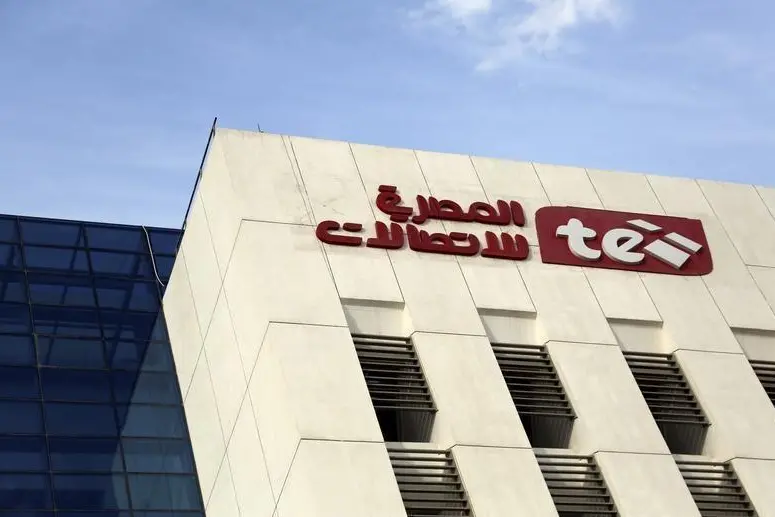PHOTO
Telecom Egypt could be entering the competition to provide mobile phone services, reports Ahmed Kotb
The Egyptian landline monopoly Telecom Egypt (TE) was the first company to show interest this week in the new high-speed 4G telecoms licences announced recently by the Ministry of Telecommunications. TE has been looking to enter the mobile services market for some time.
Yasser Al-Qadi, the minister of telecommunications, said last week that the ministry has sent letters to TE and the country's three other mobile phone service providers --Vodafone, Orange and Etisalat -- to inform them of the 4G technology.
The licencing process and agreements would be completed and signed in less than two months, the ministry said, without disclosing details about either the cost of the new licences or when the 4G service will be available to users.
The ultra-fast, fourth-generation mobile phone technology, technically known as LTE, has become popular worldwide since its introduction in 2004. It enables high-speed Internet surfing from mobile phones, allowing users to watch videos and play advanced games online.
There have not been widespread complaints about the existing 3G technology, but many users have called for the introduction of the new fourth-generation technology as it is expected to lower the cost of mobile Internet usage. Charges for 4G mobile services are expected to be at least slightly higher than 3G.
The three existing mobile phone service operators might not be happy about a new competitor in the market, since the prices of some services may need to be lowered to retain customers.
"The mobile services market is saturated at penetration levels of more than 110 per cent, since many subscribers have more than one line," said Ehab Said, head of the telecommunications division at the Cairo Chamber of Commerce.
The number of mobile services subscribers had fallen from 95.3 million in 2015 to 93.1 million by February this year, according to the Central Agency for Public Mobilisation and Statistics (CAPMAS).
Mobile data revenues are expected to increase in Egypt as more mobile phone users are surfing the Internet with mobile phones, according to Beltone Financial, a research firm. However, most users have phones that only support 3G technology, and they will now have to buy more expensive phones that support 4G.
Rapid population growth and cheaper technologies are advantages that make investing in the mobile services market encouraging in the longer run, Beltone said.
As for the country's readiness to provide 4G services, most of the infrastructure work was done over the past two years, Said noted, as the mobile operators were expecting the introduction of the new technology.
Currently, TE offers mobile services via Vodafone Egypt, in which it holds a 45 per cent stake. This is one of the main problems that need to be addressed with TE entering the mobile services market directly, Said said.
Khaled Hegazy, Vodafone's external affairs director, said in a press release that his company is waiting for the details of the 4G licences from the Ministry of Telecommunications and that it is interested in offering the new service to clients.
"About 98 per cent of our network stations are prepared for 4G services. There is no problem with the infrastructure," Hegazy added.
If TE acquires a licence to become the fourth mobile operator in Egypt, it will be able to offer 4G services temporarily through the networks of the existing operators until it builds its own, Said said. But it is not clear how TE can compete in an already saturated market, he added.
TE has been trying to enter the mobile services market since 2009, when it first applied for a licence. But it was only when a "unified licence" was issued in 2013, under which mobile and landline services could be provided by all companies, that it was able to apply for approval in 2014. This did not come into effect, however.
TE had been meant to offer mobile phone services through the unified licence after paying LE2.5 billion, and the three existing mobile providers were to pay LE100 million in order to provide landline services. The unified service licence was looked at as a way to prevent the growth of monopolies in the telecommunications market.
Al-Qadi said last week in a television interview that the unified licences will be revisited and might come into effect soon. However, the number of landline subscribers and their growth might not encourage the three mobile operators to invest in this segment. The number of subscribers to landline services went down from about 10 million in 2010 to 6.3 million this year, according to CAPMAS.
"In 2013, TE relied on introducing 4G technology for the first time as a key element to attract subscribers, but now all operators can have the same advantage," Said said, adding that TE will have to be very creative to find new ways to attract potential clients.
Other challenges that TE will face in the mobile services market include the cost of the licence and of the 4G frequencies, both of which have yet to be identified, he added.
© Al Ahram Weekly 2016





















